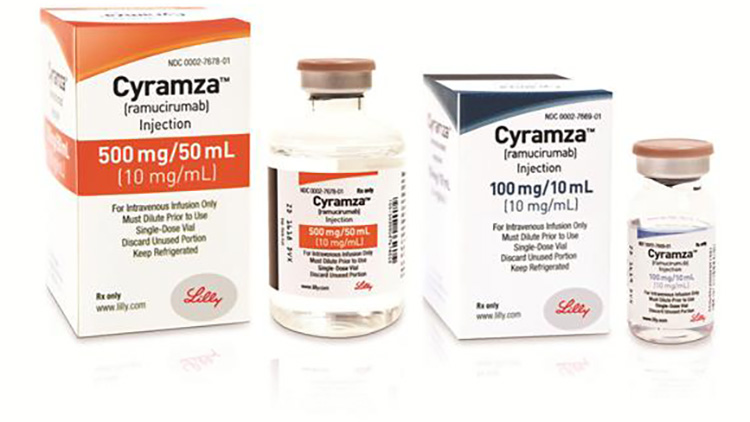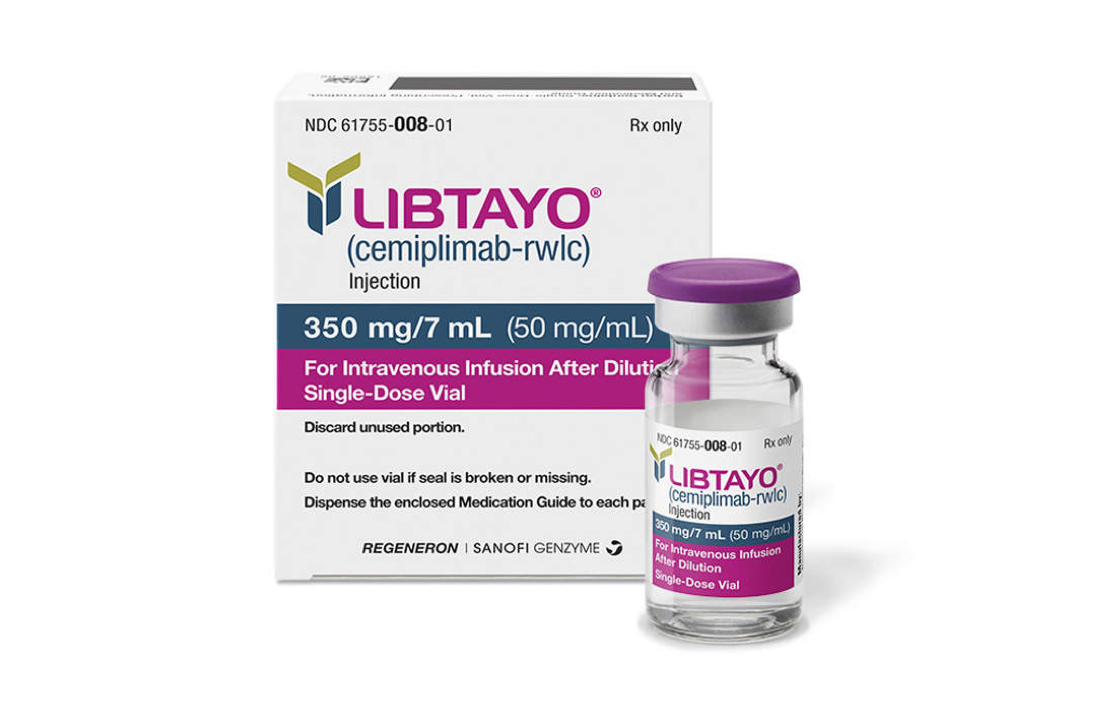Cyramza (ramucirumab) vs Libtayo (cemiplimab)
Cyramza (ramucirumab) vs Libtayo (cemiplimab)
Cyramza (ramucirumab) is a vascular endothelial growth factor (VEGF) Receptor 2 antagonist used for the treatment of various types of cancer, including gastric cancer, colorectal cancer, and non-small cell lung cancer, by inhibiting the blood supply that fuels tumor growth. Libtayo (cemiplimab) is an immune checkpoint inhibitor targeting the PD-1 (programmed death-1) receptor, primarily used for the treatment of cutaneous squamous cell carcinoma (CSCC), basal cell carcinoma (BCC), and non-small cell lung cancer (NSCLC), and it works by enhancing the body's immune system to fight cancer cells. When deciding between Cyramza and Libtayo, it is crucial to consider the type of cancer being treated, the specific mechanism of action of each medication, and the patient's overall health profile, as these factors will influence the effectiveness and suitability of the treatment.
Difference between Cyramza and Libtayo
| Metric | Cyramza (ramucirumab) | Libtayo (cemiplimab) |
|---|---|---|
| Generic name | ramucirumab | cemiplimab |
| Indications | Gastric cancer, non-small cell lung cancer, colorectal cancer, hepatocellular carcinoma | Cutaneous squamous cell carcinoma, basal cell carcinoma, non-small cell lung cancer |
| Mechanism of action | Angiogenesis inhibitor; VEGF receptor 2 antagonist | Immune checkpoint inhibitor; PD-1 blocking antibody |
| Brand names | Cyramza | Libtayo |
| Administrative route | Intravenous infusion | Intravenous infusion |
| Side effects | Hypertension, diarrhea, headache, hyponatremia | Fatigue, rash, diarrhea, musculoskeletal pain |
| Contraindications | Hypersensitivity to ramucirumab or any component of the formulation | Hypersensitivity to cemiplimab or any component of the formulation |
| Drug class | Monoclonal antibody | Monoclonal antibody |
| Manufacturer | Eli Lilly and Company | Regeneron Pharmaceuticals in collaboration with Sanofi |
Efficacy
Cyramza (Ramucirumab) Efficacy in Lung Cancer
Cyramza (ramucirumab) is a monoclonal antibody designed to target and inhibit the vascular endothelial growth factor receptor 2 (VEGFR2), which can contribute to the growth of blood vessels that supply tumors, including those in lung cancer. In the context of lung cancer, Cyramza is specifically indicated for use in combination with docetaxel for the treatment of patients with metastatic non-small cell lung cancer (NSCLC) after platinum-based chemotherapy has failed. Clinical trials have demonstrated that when Cyramza is added to docetaxel, there is a statistically significant improvement in overall survival compared to docetaxel alone. This combination has also shown an increase in progression-free survival, making it a valuable option for the second-line treatment of NSCLC.
Libtayo (Cemiplimab) Efficacy in Lung Cancer
Libtayo (cemiplimab) is a programmed death receptor-1 (PD-1) blocking antibody utilized in the treatment of certain types of lung cancer. Specifically, it has been approved for the first-line treatment of patients with NSCLC whose tumors express PD-L1 on at least 50% of tumor cells and who do not have EGFR, ALK, or ROS1 aberrations. The efficacy of Libtayo in this setting was established in a pivotal phase 3 trial, which showed a significant improvement in overall survival and progression-free survival when compared with chemotherapy. These results indicate that Libtayo can be an effective first-line treatment option for patients with advanced NSCLC with high PD-L1 expression.
Both Cyramza and Libtayo represent important advancements in the treatment of lung cancer, offering hope for improved outcomes in patients with advanced disease. While Cyramza is often used in combination with chemotherapy in the second-line setting, Libtayo serves as a first-line monotherapy for certain patients with high PD-L1 expression. The choice of treatment depends on various factors, including the specific characteristics of the cancer, prior treatments, and the overall health of the patient.
It is important to note that while both drugs have shown efficacy in the treatment of lung cancer, they are associated with different side effect profiles and mechanisms of action. As with all cancer treatments, the decision to use Cyramza or Libtayo should be made by a healthcare professional in consultation with the patient, taking into account the potential benefits and risks of each medication.
Regulatory Agency Approvals
Cyramza
-
European Medical Agency (EMA), European Union

-
Food and Drug Administration (FDA), USA

-
Health Canada

-
Therapeutic Goods Administration (TGA), Australia

-
Medsafe (NZ)

Libtayo
-
European Medical Agency (EMA), European Union

-
Food and Drug Administration (FDA), USA

-
Health Canada

Access Cyramza or Libtayo today
If Cyramza or Libtayo are not approved or available in your country (e.g. due to supply issues), you can access them via Everyone.org.
How it works

Make an enquiry
Choose the medicine you want to buy, answer a couple of questions, and upload your prescription to speed things up. We’ll get back to you within 24 hours.


Make an enquiry
Choose the medicine you want to buy, answer a couple of questions, and upload your prescription to speed things up. We’ll get back to you within 24 hours.


Breeze through the paperwork
We'll guide you through the required documents for importing unapproved medicine, ensuring you have all the necessary information.


Get a personalized quote
We’ll prepare a quote for you, including medicine costs and any shipping, administrative, or import fees that may apply.


Receive your medicine
Accept the quote and we’ll handle the rest - sourcing and safely delivering your medicine.

Some text on this page has been automatically generated. Speak to your physician before you start a new treatment or medication.
Let's talk
If you have any questions, call us or send us a message through WhatsApp or email:
Contact us




